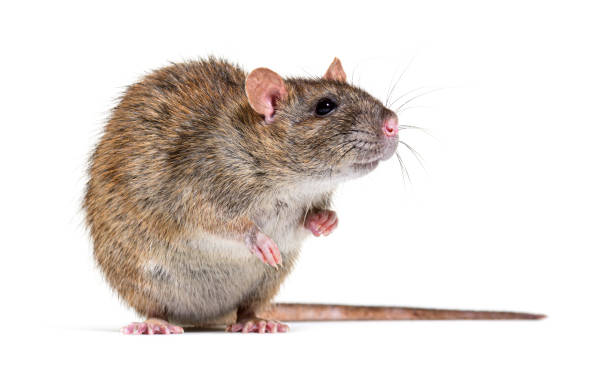Unveiling the Unsung Heroes: The Role of Therapy Rats in Modern Healthcare
Introduction: While rats have often been maligned throughout history, these intelligent creatures are gaining recognition for their role in therapy and emotional support. Today, we explore the surprising benefits and evolving role of therapy rats in modern healthcare.

The Historical Perception of Rats
Rats have endured a long-standing negative reputation for centuries. Often associated with filth, disease, and destruction, they have been vilified in folklore and popular culture. However, this image is far from reality. Rats are highly intelligent and social animals, displaying a range of complex behaviors and emotions. In recent years, they have emerged as valuable companions in the field of animal-assisted therapy.
Therapy Rats: A New Era in Animal-Assisted Therapy
Animal-assisted therapy (AAT) involves the use of animals, such as dogs, horses, and even rats, to improve the mental, physical, and emotional well-being of individuals. Therapy rats, in particular, have been increasingly recognized for their potential therapeutic benefits. Known for their intelligence, empathy, and sociability, they have become valuable therapeutic aids for people suffering from a variety of conditions, including autism, PTSD, and anxiety disorders.
The Healing Power of Rats
Unlike other therapy animals, rats are small, easy to handle, and require less space. This makes them ideal for settings like hospitals and nursing homes where space is limited. Their gentle nature and affinity for human companionship can provide comfort and reduce feelings of loneliness and isolation. Research has also shown that interacting with rats can lower blood pressure, decrease stress levels, and stimulate cognitive function.
The Rising Popularity of Therapy Rats
The use of therapy rats is gaining ground in various sectors. In the educational sphere, therapy rats are used to aid children with special needs, improving their social skills and boosting their confidence. In the healthcare sector, they provide emotional support to patients undergoing treatment. Even in the corporate world, therapy rats are being incorporated into wellness programs to alleviate workplace stress.
The Future of Therapy Rats: Challenges and Opportunities
Despite their increasing popularity, therapy rats still face challenges. Misconceptions about rats and lack of awareness about their therapeutic potential can limit their acceptance. However, as more research emerges validating their therapeutic benefits, the role of rats in therapy is likely to continue expanding.
Therapy rats are transforming the way we view animal-assisted therapy, proving that even the smallest creatures can bring about significant change. As we continue to explore their potential, we might just find that these unsung heroes have much more to offer than meets the eye.




